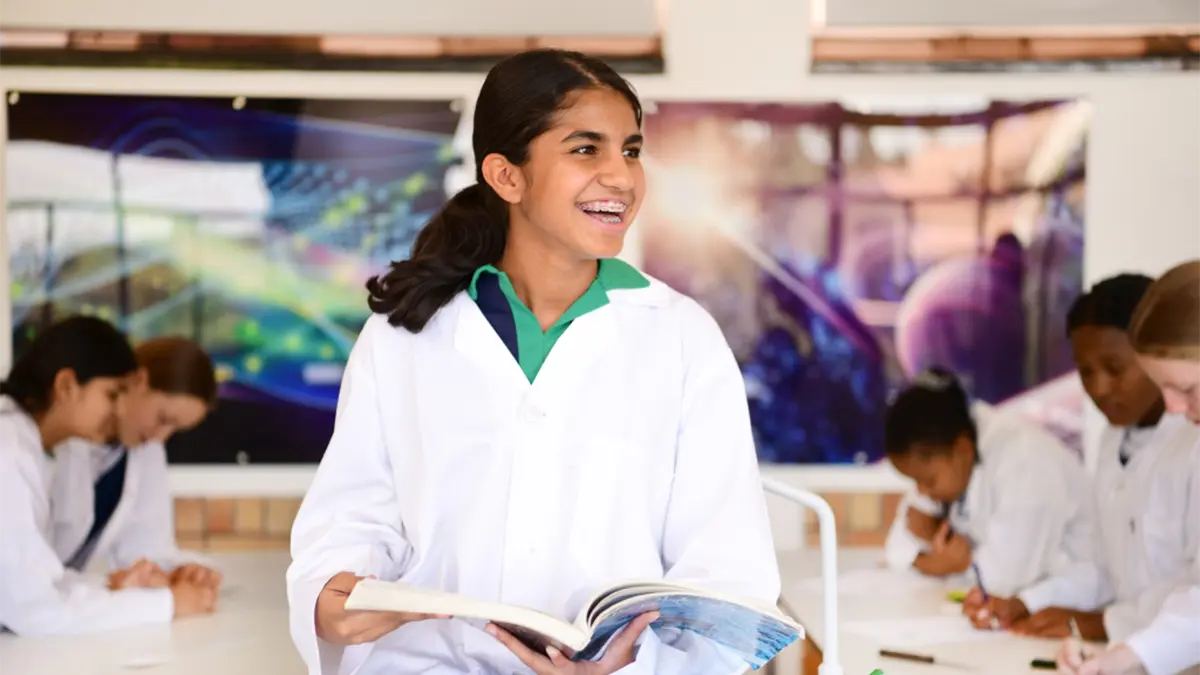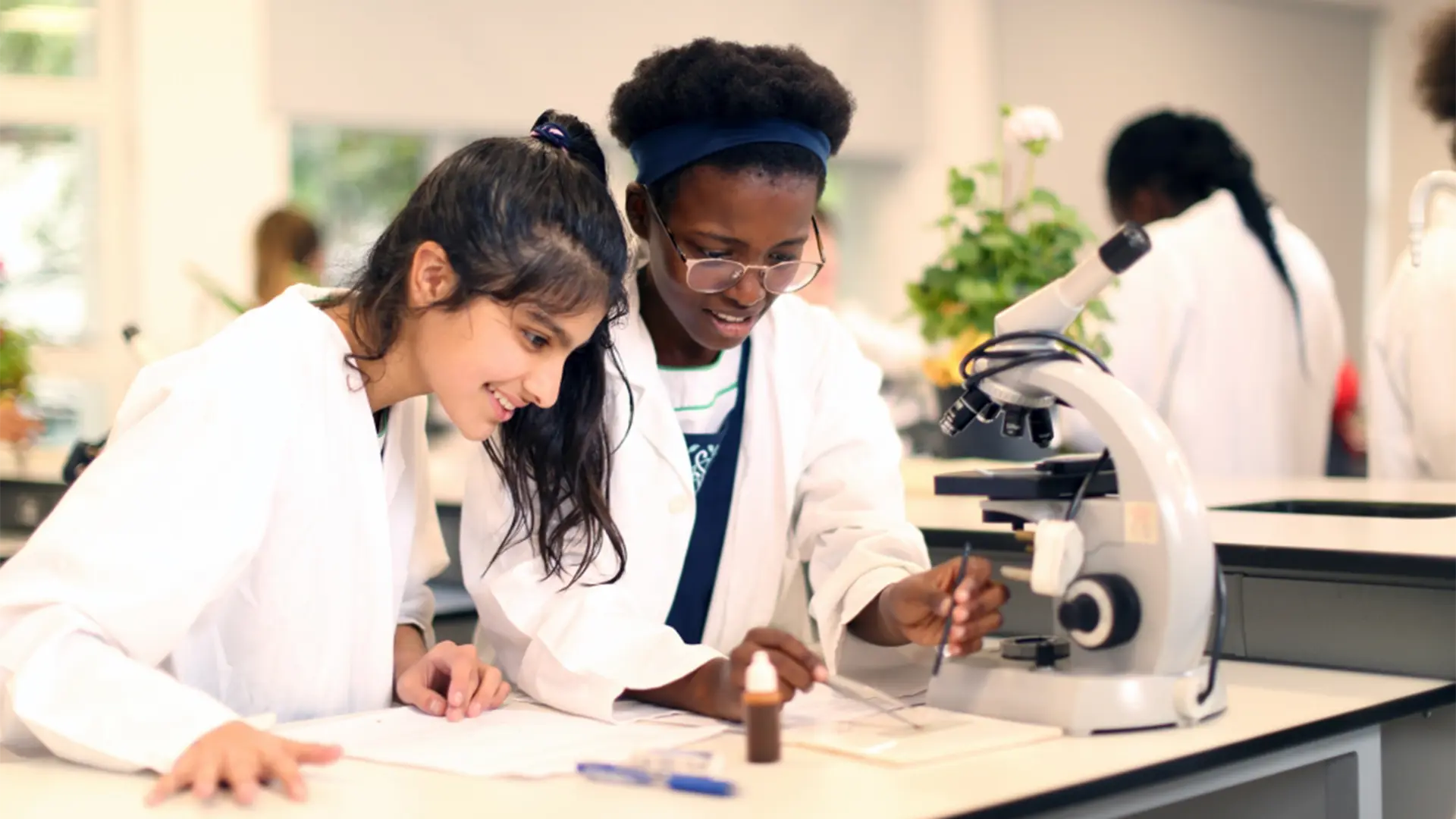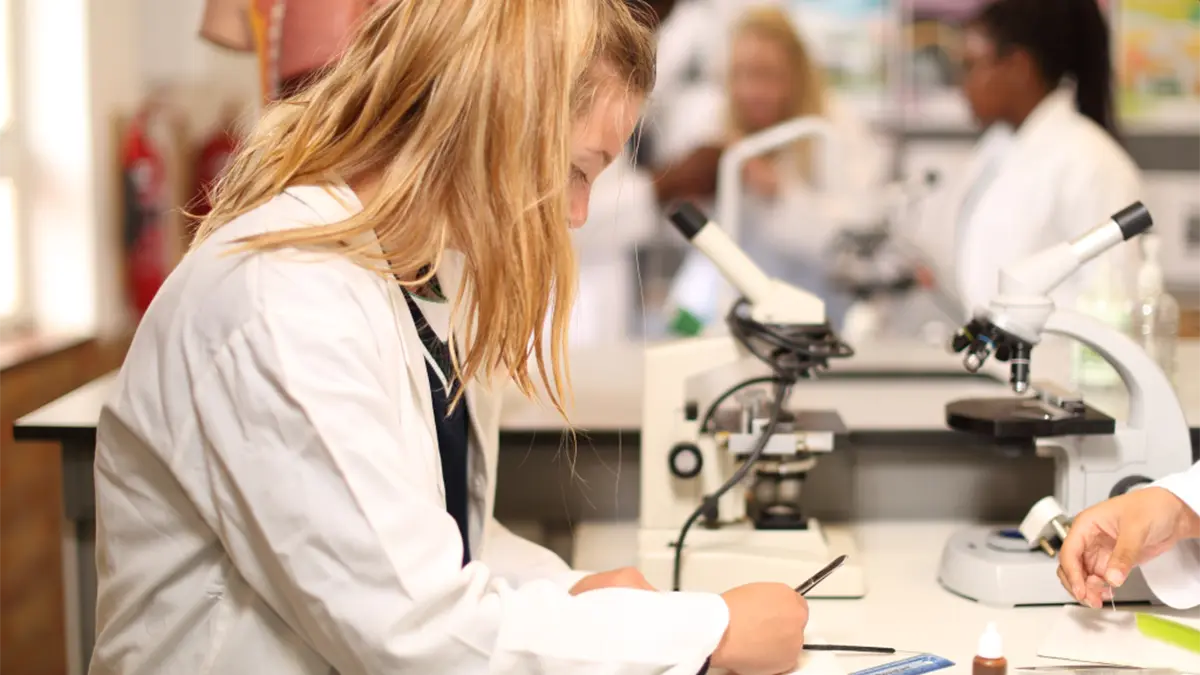Our Campus
State-of-the-Art Science Laboratories
Science Laboratories
Life Sciences
Life Sciences is an exciting study of life in an environment that is constantly changing. The pupils are encouraged to develop along three interdependent pathways:
- Learning by investigation.
- Developing a sound understanding of biological concepts and processes.
- Applying the concepts to society and the environment.
Focus is placed on the value of understanding the workings of one’s own body and the natural world in order to make informed decisions regarding our human health and that of the environment in which we live. Many stimulating activities ensure that pupils develop a wide range of inquiry, problem-solving and critical-thinking skills. Some of the tasks/projects undertaken are problem-solving projects carried out by Middle Vs, devising solutions for food sustainability in Johannesburg, and Upper Vs, devising solutions for the environmental impacts of COVID-19 and the human and environmental impact in the Delta Park area.
Life Sciences is one of the fastest growing fields with ongoing new developments that are likely to impact our daily lives. The highly dynamic nature of the subject allows for the incorporation of new topics as advances in the field occur. The incorporation of these new research findings into lessons allows pupils to appreciate the impact that biological science is having on society and the environment today. The impact of COVID-19 and the development of subsequent medical technology is the perfect example. In this light we also study biotechnology and its many applications. The Lower Vs complete many practical applications of biotechnological processes in food production and the Matrics actually transform bacteria using recombinant DNA technology.
Something we believe to be essential to studying Life Sciences is the skills focus of the subject. As a department we enjoy approaching the teaching of Life Science in a practical way. We believe this allows our pupils to approach tasks with wonderment and awe, which then leads to enjoyment, and the positive effect of this prepares them for learning at a deeper level and allows a more effective development of the understanding of the concepts in Life Sciences. As a result, we try to incorporate as many practical activities as possible into learning. Some examples are: microscopes to teach cells; building models to teach different body systems; practicals to teach complicated processes of photosynthesis, respiration etc; practical applications of asexual reproduction in plants.
The curriculum exposes pupils to various ethical debates in biology. Many scientific breakthroughs in the biological arena have ethical implications that need to be unpacked and understood as they influence decision making at both individual and societal level. It also strives to make pupils aware of how experimental bias can undermine an investigation and how to critically evaluate scientific process.
Sciences Laboratories
Physical Sciences
A good definition of science is this: “The intellectual and practical activity encompassing the systematic study of the structure and behaviour of the physical and natural world through observation and experiment”.
It is the ‘observation and experiment’ part of this definition that is often neglected. In the Roedean Physical Sciences department we aim to incorporate as much experiential learning into our curriculum as possible. Our philosophy in Lower V (Grade 8) is that we will teach only concepts that can be experienced in some way by the pupils. The use of technology has greatly improved our ability to investigate atomic phenomena using animations and simulations, while we continue to expand our equipment base to ensure that any investigation that can be done by the girls themselves, is done by them.
It is our belief that science would be greatly benefited by the input and wisdom of more women, and so we aim to get the young scientists at Roedean to be fascinated by and curious about the physical world around them. This, we believe, will lead to more of these young women pursuing careers in Engineering, Pure Mathematics, Chemistry and Physics, allowing them to lead lives of significance in these historically male-dominated fields.



